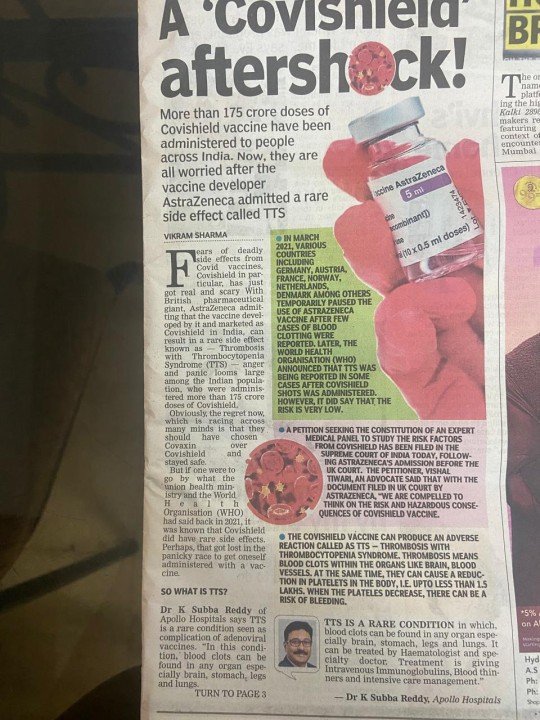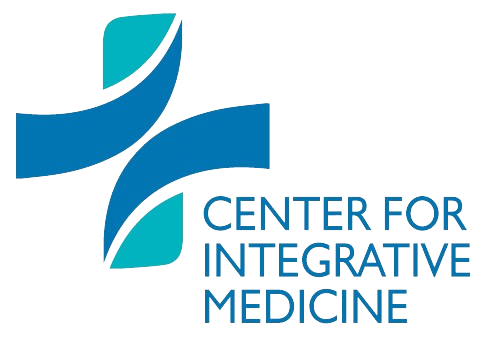From 6 am to 7 am, it’s ‘Mum Time’ with my mom—a sacred hour where a steaming mug of black coffee fuels both conversation and, if required, silence. Just as the clock struck 7, the newspaper guy, always in a mad rush to conquer his morning delivery quest, catapulted today’s paper through the window. For me, every minute detail of national and state politics is like pure entertainment. Meanwhile, my wife, quickly snatched the magazine section for her entertainment.
But surprisingly, within the blink of an eye, she flung the paper back to me and insisted I read something that initially seemed absurd. And then ridiculously absurd.
It’s unbelievable that people are still hyperventilating about the so-called rare catastrophic side effects—TTS, “Thrombosis Thrombocytopenia Syndrome”—of AstraZeneca/Covishield. Really, after 3 years?!
“Stray dogs in India go on a biting spree in summer”
The fatality rate after contracting rabies is 100%. Would you or would you not take an Anti-Rabies vaccine as recommended??
Contemplating the situation in a healthcare setting, whether it’s the urgency of an emergency drug, the drug management of chronic health conditions, or the delicate balance of inducing artificial passive immunity for neurological emergencies or venomous snake bites, reveals a profound truth about the intentions of healthcare providers. Their aim, perhaps above all else, is to save lives and aid patients in their recovery from health crises. Yet, to achieve this goal, they must often administer substances—drugs, vaccines, serums—about which there remains limited knowledge, into individuals they know little about.
It’s a stark reality. Inevitably, side effects may arise, even in the face of meticulous testing and scrutiny during the development stages. These substances undergo rigorous evaluation, progressing from controlled laboratory environments to meticulously monitored human trials. Nonetheless, the inherent complexity of the human immune system means that unforeseen reactions can occur, underscoring the responsibility and inherent uncertainties within the situational difficulties of medicine. Taking the vaccine was important and unavoidable.
Regarding individuals who have received Covishield/AstraZeneca, it’s essential to understand the context. When Covid-19 vaccines first emerged between January 2021 and April 2021, Covishield, the Indian iteration of the AstraZeneca vaccine, was predominantly available. This vaccine reached people in over 100 countries worldwide. Initially, concerns arose when a few cases of significant blood clotting were reported in Norway, Denmark, Italy, and the UK.
However, subsequent investigations by the European Medicines Agency (EMA) revealed that the incidence of blood clotting followed by death was extremely rare, with a risk of 1 in 100,000—particularly affecting younger age groups, surprisingly, those under 50 years old. Some countries, like Australia, even recommended restricting AstraZeneca’s use to adults above 30 years old. In India, faced with the onslaught of the deadly Delta variant during the second wave of Covid-19, the urgency and importance of vaccination became clear. The vaccine became a crucial tool in preventing hospitalizations, complications, and fatalities due to Covid-19 infection.
What Happened To All This Noise in the Last 3 Years?
In the last 3 years, we’ve seen a tragic pattern emerge: young men, including prominent figures like movie stars, TV personalities, singers, and acquaintances, unexpectedly passing away. Whether it’s during a favorite sport, after an intense workout, following a meal, or even in their sleep, these incidents have made headlines in social and print media. The question looms: are clotting events to blame, precipitating sudden cardiac compromise and subsequent death? Or should we simply attribute these tragedies to the spectre of Coronary Artery Disease, a condition known to afflict even the young, particularly those with a familial history?
In India, such deaths often get categorized as natural, bypassing the need for autopsy to determine the precise cause. Yet, it’s crucial to acknowledge the complexity of these cases. We lack the means to thoroughly investigate each demise, nor can we accurately predict who might fall victim to such events.
I am surprised nobody is talking about Covaxin
The emergence of COVAXIN has brought to light a concerning trend: an uptick in autoimmune emergencies such as Guillain-Barré Syndrome (GBS), Chronic Inflammatory Demyelinating Polyneuropathy (CIDP), and chronic inflammatory conditions like Rheumatoid Arthritis and Systemic Sclerosis. This phenomenon seems particularly pronounced among women of childbearing age and the elderly population.
So, should you be worried if you’ve taken Covishield?
For those who received COVISHIELD or ASTRAZENECA, let’s put things into perspective.
When COVID-19 first swept the globe in early 2020, Italy bore a heavy toll, with a group of doctors there noting that untreated viral infection could trigger a dangerous immune system response, leading to clot formation in vital organs like the brain, heart, lungs, and kidneys.
Considering this, should we really fret over potential clotting issues linked to AstraZeneca? If you never contracted COVID-19 or tested positive during the initial waves, count yourself fortunate.
And if you’ve received a COVISHIELD shot and are feeling well, celebrate that. Because for those who did contract the virus before vaccines were widely available, or were inadequately vaccinated during subsequent waves, the outcomes were far grimmer.
Hospitalizations, complications, and even fatalities were all too common, compounded by the complexities of multi-system involvement and the medications used for treatment.
Should one worry? Not at all. Let the intensity of worry not grab the best of you. It’s summer in India—have some chilled beer, enjoy the mangoes and the melons, and relax with your near and dear ones.
***During the vaccination campaign, I put my loved ones on blood thinners for up to 3 months due to known side effects of Covisheild, based on cautionary reports at the time.***



